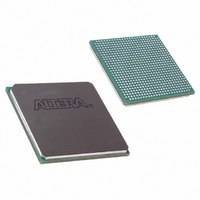EP2S30F672I4N Altera, EP2S30F672I4N Datasheet - Page 102

EP2S30F672I4N
Manufacturer Part Number
EP2S30F672I4N
Description
IC STRATIX II FPGA 30K 672-FBGA
Manufacturer
Altera
Series
Stratix® IIr
Datasheet
1.EP2S15F484I4N.pdf
(238 pages)
Specifications of EP2S30F672I4N
Number Of Logic Elements/cells
33880
Number Of Labs/clbs
1694
Total Ram Bits
1369728
Number Of I /o
500
Voltage - Supply
1.15 V ~ 1.25 V
Mounting Type
Surface Mount
Operating Temperature
-40°C ~ 100°C
Package / Case
672-FBGA
Lead Free Status / RoHS Status
Lead free / RoHS Compliant
Number Of Gates
-
Other names
544-1900
EP2S30F672I4N
EP2S30F672I4N
Available stocks
Company
Part Number
Manufacturer
Quantity
Price
Company:
Part Number:
EP2S30F672I4N
Manufacturer:
ALTERA
Quantity:
238
- Current page: 102 of 238
- Download datasheet (3Mb)
I/O Structure
2–94
Stratix II Device Handbook, Volume 1
Notes to
(1)
(2)
(3)
(4)
Table 2–18. Stratix II MultiVolt I/O Support
V
CCIO
1.2
1.5
1.8
2.5
3.3
To drive inputs higher than V
and LVCMOS input levels to overdrive input buffer option in the Quartus II software.
The pin current may be slightly higher than the default value. You must verify that the driving device’s V
maximum and V
voltage specifications.
Although V
a different level can still interface with the Stratix II device if it has inputs that tolerate the V
Stratix II devices do not support 1.2-V LVTTL and 1.2-V LVCMOS. Stratix II devices support 1.2-V HSTL.
(V)
Table
2–18:
1.2
(4)
(4)
(4)
(4)
CCIO
(4)
specifies the voltage necessary for the Stratix II device to drive out, a receiving device powered at
O H
v
minimum voltages do not violate the applicable Stratix II V
1.5
v
v
(2)
Input Signal (V)
Table 2–18
The TDO and nCEO pins are powered by V
in. TDO is in I/O bank 4 and nCEO is in I/O bank 7.
Ideally, the V
at the same voltage level. This may not always be possible depending on
the V
configuration voltage level chosen by VCCSEL on slave devices. Master
and slave devices can be in any position in the chain. Master indicates that
it is driving out TDO or nCEO to a slave device.
For multi-device passive configuration schemes, the nCEO pin of the
master device drives the nCE pin of the slave device. The VCCSEL pin on
the slave device selects which input buffer is used for nCE. When VCCSEL
is logic high, it selects the 1.8-V/1.5-V buffer powered by V
VCCSEL is logic low it selects the 3.3-V/2.5-V input buffer powered by
V
device match the VCCSEL settings for the nCE input buffer of the slave
device it is connected to, but that may not be possible depending on the
application.
ensure that nCEO can successfully drive nCE for all power supply
combinations.
CCPD
CCIO
v
1.8
v
v
CCIO
but less than 4.0 V, disable the PCI clamping diode and select the Allow LVTTL
. The ideal case is to have the V
(2)
level of TDO and nCEO pins on master devices and the
summarizes Stratix II MultiVolt I/O support.
Table 2–19
v
v
v
CC
2.5
v
v
(2)
(2)
(2)
supplies for the I/O buffers of any two connected pins are
Note (1)
v
v
v
3.3
v
v
contains board design recommendations to
(2)
(2)
(2)
v
v
v
v
v
1.2
(3)
(3)
(3)
(4)
(3)
CCIO
v
v
v
1.5
v
(3)
(3)
(3)
CCIO
of the nCEO bank in a master
Output Signal (V)
I L
of the bank that they reside
v
v
maximum and V
1.8
v
(3)
(3)
v
CCIO
Altera Corporation
2.5
v
(3)
value.
CCIO
I H
3.3
v
minimum
. When
May 2007
O L
5.0
v
Related parts for EP2S30F672I4N
Image
Part Number
Description
Manufacturer
Datasheet
Request
R

Part Number:
Description:
CYCLONE II STARTER KIT EP2C20N
Manufacturer:
Altera
Datasheet:

Part Number:
Description:
CPLD, EP610 Family, ECMOS Process, 300 Gates, 16 Macro Cells, 16 Reg., 16 User I/Os, 5V Supply, 35 Speed Grade, 24DIP
Manufacturer:
Altera Corporation
Datasheet:

Part Number:
Description:
CPLD, EP610 Family, ECMOS Process, 300 Gates, 16 Macro Cells, 16 Reg., 16 User I/Os, 5V Supply, 15 Speed Grade, 24DIP
Manufacturer:
Altera Corporation
Datasheet:

Part Number:
Description:
Manufacturer:
Altera Corporation
Datasheet:

Part Number:
Description:
CPLD, EP610 Family, ECMOS Process, 300 Gates, 16 Macro Cells, 16 Reg., 16 User I/Os, 5V Supply, 30 Speed Grade, 24DIP
Manufacturer:
Altera Corporation
Datasheet:

Part Number:
Description:
High-performance, low-power erasable programmable logic devices with 8 macrocells, 10ns
Manufacturer:
Altera Corporation
Datasheet:

Part Number:
Description:
High-performance, low-power erasable programmable logic devices with 8 macrocells, 7ns
Manufacturer:
Altera Corporation
Datasheet:

Part Number:
Description:
Classic EPLD
Manufacturer:
Altera Corporation
Datasheet:

Part Number:
Description:
High-performance, low-power erasable programmable logic devices with 8 macrocells, 10ns
Manufacturer:
Altera Corporation
Datasheet:

Part Number:
Description:
Manufacturer:
Altera Corporation
Datasheet:

Part Number:
Description:
Manufacturer:
Altera Corporation
Datasheet:

Part Number:
Description:
Manufacturer:
Altera Corporation
Datasheet:

Part Number:
Description:
CPLD, EP610 Family, ECMOS Process, 300 Gates, 16 Macro Cells, 16 Reg., 16 User I/Os, 5V Supply, 25 Speed Grade, 24DIP
Manufacturer:
Altera Corporation
Datasheet:












